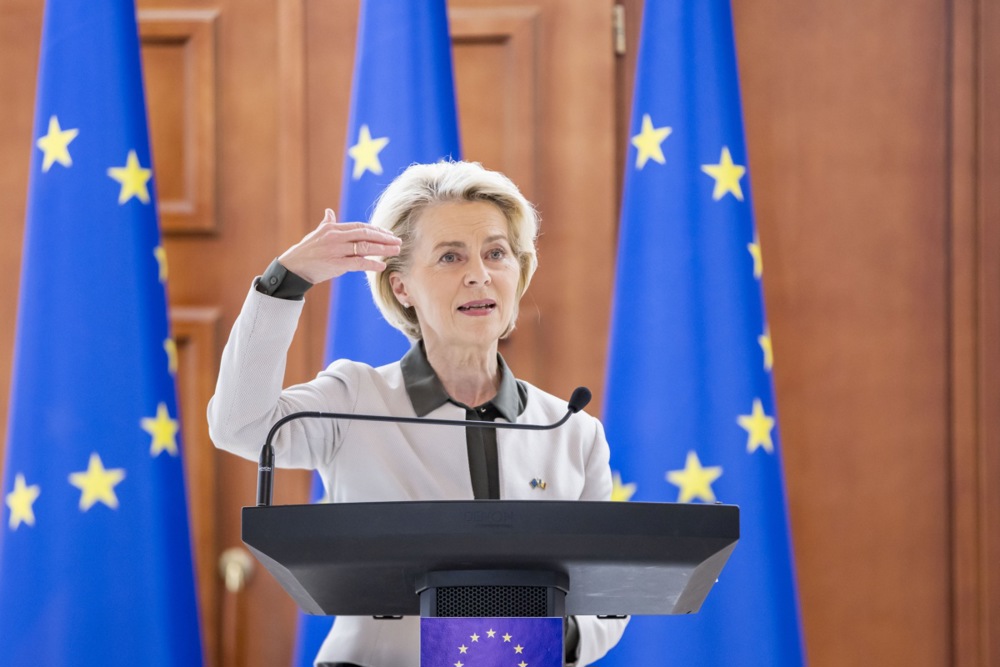Tuesday night America’s global power snapped. A US president who took the highly unusual step of going in person to the Middle East to try to contain a major crisis, was snubbed by the Arab leaders he came to see. The weight once attached to the office of President of the United States appeared to dissipate just like the mental acuity of its incumbent.
Worse, the powerful display of force by the US military, with additional carrier strike groups and Marine expeditionary units sent to the area ahead of Air Force One, counted for nothing. There was a time when nations like these were wary, if not positively afraid, of Uncle Sam. Joe Biden did not even get a hearing.
The Arab treatment of Biden this week is not a fluke, either. Antony Blinken, the US Secretary of State, was subjected to outright humiliations on his tour of the region in the preceding days. In Cairo, Blinken received a public dressing-down by President Sissi; in Riyadh he was kept waiting for a day before Crown Prince Salman (MBS) even gave him an audience; and in Jordan he was likewise hectored and had to endure accusations and condemnations.
Blinken’s scrambling from one Muslim capital to another, euphemistically termed “shuttle diplomacy” by a Western press that has well and truly lost the plot, was a complete disaster. All he seemed to achieve was a vow by Sissi that Egypt would channel the Gazan refugees – up to a million – directly into Europe.
Taken together, what Blinken and Biden experienced this week is an extraordinary affront and an open challenge to US authority, with colossal implications. History is being made right before our eyes, these very days, as we see the old structures of regional order, founded on Western prestige and military might, wobble and perhaps begin to crumble.
Just on Sunday Biden felt compelled to say on CBS’s 60 Minutes, almost in a pleading voice, that “We’re the United States of America for God’s sake, the most powerful nation in the history – not in the world, in the history of the world.”
There is a touch of both the juvenile, senile and the desperate to this statement, which a genuinely confident global leader would never have to make because true power speaks for itself.
We can only hope that the damage is but temporary and that a new White House leader in 2024 will be able to grip the strategic issues and restore the substance and standing of American power in the world.
In the meantime, the task for the West is to at least hold the strategic line against the coalition of autocracies confronting it; this might require more forceful measures.
The problem is that these adversaries have now sensed that there is blood in the water. While Biden was preparing for his ill-starred flight across the Atlantic, Putin was holding calls with all key Middle East players who would end up cancelling their meetings with the US president. With the support of Xi Jinping, the Kremlin ruler talked with everyone from Assad and MBS to Sissi and Mahmoud Abbas, the Iranians and even with Israel’s Netanyahu.
The present moment, as Israel prepares its offensive into Gaza, needs to be navigated with great care. The purpose of Putin’s telephone diplomacy, together with Xi, is to cast themselves as the “peacemakers” in the court of global opinion.
They’re also using this huge Hamas-created crisis to make decisive progress in rewiring power-relations in the Middle East away from a US alignment. The likes of Iran, Saudi Arabia, Turkey, Egypt, Qatar, the UAE and ultimately even Jordan are now in play like never before, moving quite explicitly in Russia’s and China’s direction.
On the other side, the United States, with its increased military deployments to the region and expected – though less than full-throated – support for large-scale Israeli military action in Gaza, is being presented like the “war-party” by media across the world. Once the IDF moves in, even without further escalation by Hezbollah and Iran, the worldwide narrative around these events – pushed by the Leftist pro-Palestinian 5th-columnists across much of the media and academia, like the now-infamous Cornell University professor – can be expected to turn even more strongly against Israel.
This is not simply about “optics”; the global information war against Israel and those on its side is having political consequences as well. These events, and the way they have been portrayed, have already had a deeply negative impact on the West’s wider diplomatic standing.
Only this week, the FT quoted a senior G7 diplomat saying that, “We have definitely lost the battle in the Global South,” and that “All the work we have done with the Global South [over Ukraine] has been lost . . . Forget about rules, forget about world order. They won’t ever listen to us again.”
Against this background President Xi hosted the leaders of some 150 countries – including Hungary’s Viktor Orban – in Beijing for a vast and impressive summit celebrating the 10th anniversary of China’s Belt and Road Initiative. In the meantime, in Ukraine the Russian army is on the offensive at Advdiivka near Bakhmut and Azerbaijan is preparing for another push in south Armenia.
There is no question that the geostrategic landscape is rapidly shifting against Western interests in a manner perhaps not seen since the 1970s.
It also does not help that the United States, the chief custodian of the post-WW2 global order, is having to deal with these momentous events through people like Jake Sullivan, Biden’s National Security Advisor, who just a week before Hamas’s barbaric attacks was saying that “the Middle East region is quieter today than it has been in two decades”.
But the Western alliance still has plenty of resources to deploy in the global theatre of strategic confrontation, if it chose to. It is a question of willpower.
Perhaps the time has come to leave aside “soft power” for a while and have recourse to that of the harder kind. In a crisis such as this we should not let our strategy and resolve be reflexively defined, or held captive, by the adversary’s strategy. Global opinion is just that, opinion. History is made of actions and facts.
There are times when a Gordian knot must be cut rather than untangled. The gloves will have to come off sooner or later, and, when faced with bloodthirsty predators like Hamas, the Iranians or the Russians, and “wolf-warrior” Chinese – the sooner the better.
Israel has had a brutal waking-up to this reality and has definitively understood – one hopes – that in the realm of international affairs, if not that of interpersonal relations, it is better to be feared than loved.
However pitiful Biden and Blinken are on a personal and political level, and whatever their failings, their humiliation at the hands of the West’s adversaries is an insult and a problem for us all. It must be answered in kind.
Gabriel Elefteriu is deputy director at the Council on Geostrategy in London and a fellow at the Yorktown Institute in Washington, D.C.






Europe’s capital needs media to challenge the status quo: That’s why Brussels Signal is launching